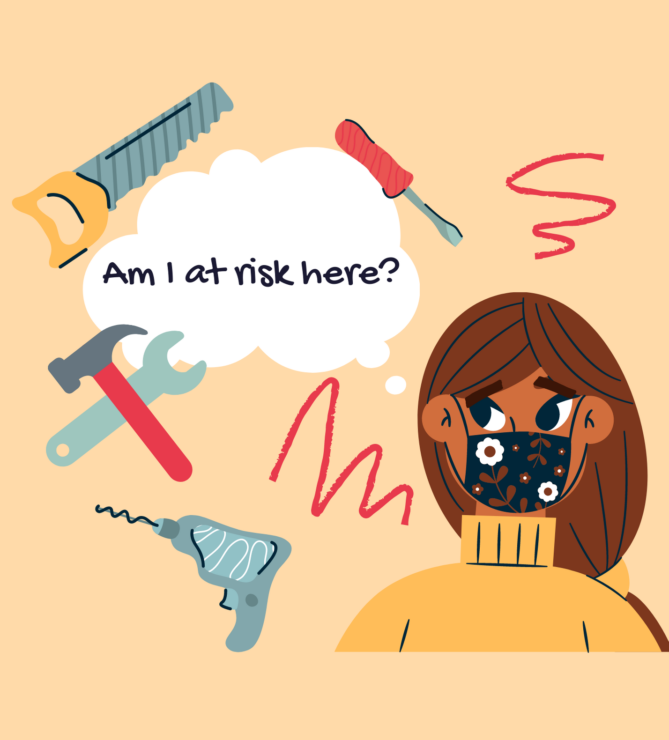Working behind the scenes in construction during COVID-19

When COVID-19 hit B.C., action was taken quickly and most places that were not essential services were closed. Construction was declared an essential service early on as part of the response made by the B.C. government, partly with the hope that it would aid in the rebuilding of the economy post COVID-19.
In Victoria, many construction workers walked off job sites because they felt uncomfortable with the level of cleanliness and lack of sanitization around the site — virtually nothing had changed with the status quo. In my own experience, the generally casual culture and laid-back employees in my construction work made working my job uncomfortable amidst a pandemic.
This summer, I began working at a cabinetry shop. Normally, we wouldn’t think twice about being in someone’s personal space while working. In such a fast-paced work environment, our job requires sharing tools and moving quickly. With efficient production, the shop dirties quickly and we rarely have the staff to properly keep up with cleaning.
Where the government asked for higher levels of sanitation, we found it difficult to maintain the above average level of cleanliness. I quickly found myself experiencing paranoia and anxiety around the social habits of my coworkers and the cleanliness of my work environment. The stress of handling higher job volumes and COVID-19 health regulations made my job as a minimum-wage labourer incredibly stressful. I had to assert myself in order to stay safe.
Provincial Health Officer Bonnie Henry’s aim was to keep things within the industry “business-as-usual”; nothing more was given to those working construction than encouragement to wash their hands more often and to avoid sharing tools. Many found, and continue to find, great difficulty accomplishing this. The nature of many construction jobs makes it nearly impossible to remain six feet apart, avoid sharing tools, and maintain a high level of cleanliness in a naturally dirty environment.
One day, a delivery driver walked into the shop and started to walk towards me, presumably to ask where he could locate my boss, and started to get a little too close. The amount of noise in the shop made it difficult for me to verbally communicate with him, leaving me feeling a lack of control over my safety.
The choice to keep the construction industry open while virtually everything else was closed made us incredibly busy. Strict regulations had us bending over backwards to accomplish simple tasks, while the workload was busier than normal as more and more jobs kept coming.
I felt a persistent anxiety in the shop. Many of us were in close contact with immunocompromised individuals and we had to trust each other not to expose one another, and everyone else in the shop, to the virus. As a team, we tried to space ourselves out as best as we could, but we could not completely avoid being near each other. There were many tense conversations regarding our social bubbles, as we all coped with our anxiety.
Naturally, that kind of trust puts strain on relationships. Being responsible for the health of yourself, your coworkers, their entire families, and your own social bubble is a type of anxiety I had never experienced.
Throughout all of these experiences and emotions, I try to remember I am working in a team much bigger than myself and I am doing my part in the global pandemic. This reminder to myself has helped me cope with stress and anxiety while I aid in the rebuilding of Canada’s economy. While it is hard to reconcile the two emotions of anxiety and pride, they both share equal space in my mind.
Reflecting on my own experiences as an essential worker has given me a greater appreciation for the health and safety aspects of the work environment, our healthcare system, and its workers. We are privileged to live in a place where everyone can pull together to accomplish a common goal. Our community remains strong and I am proud to be one of its members.






